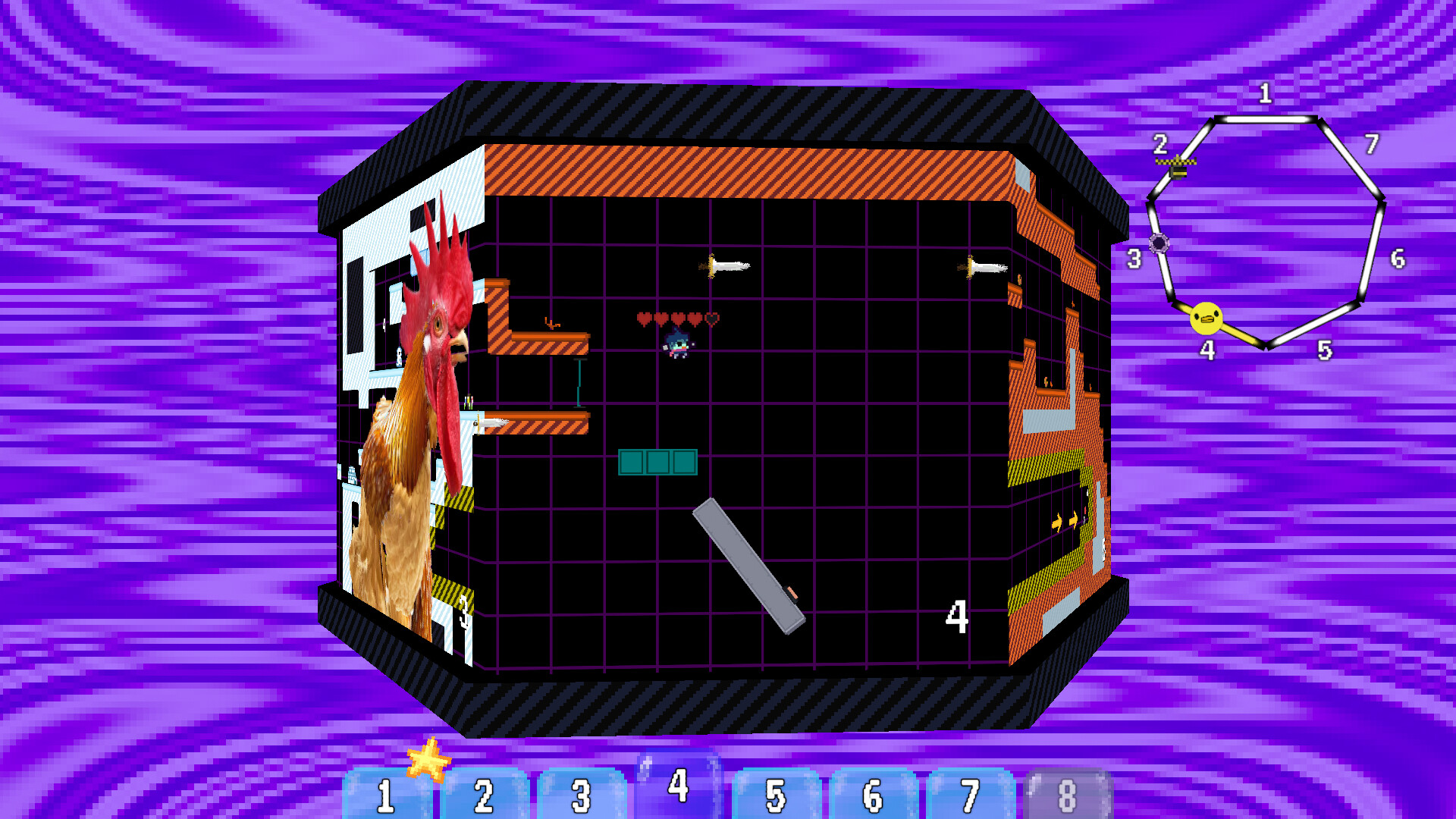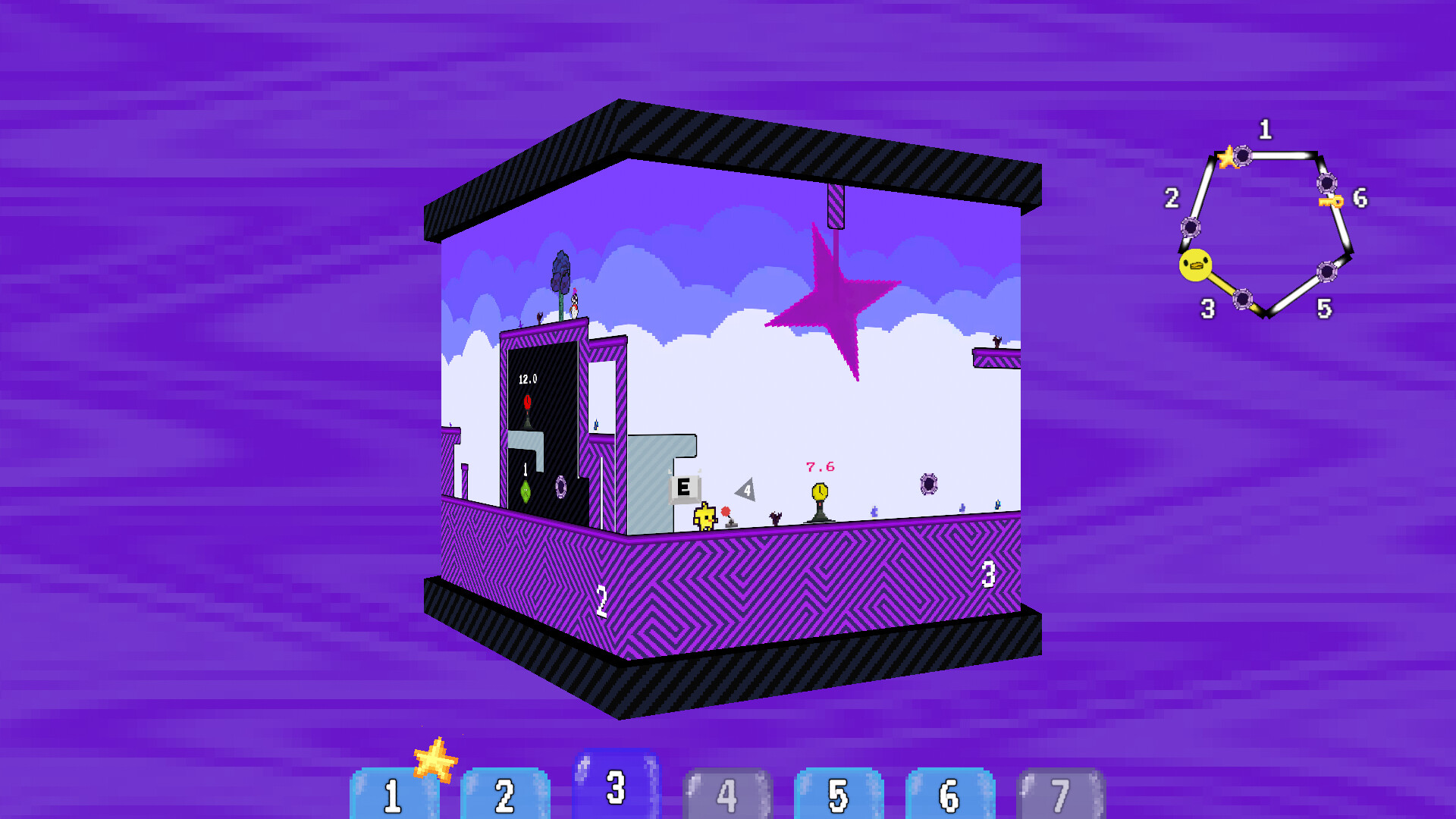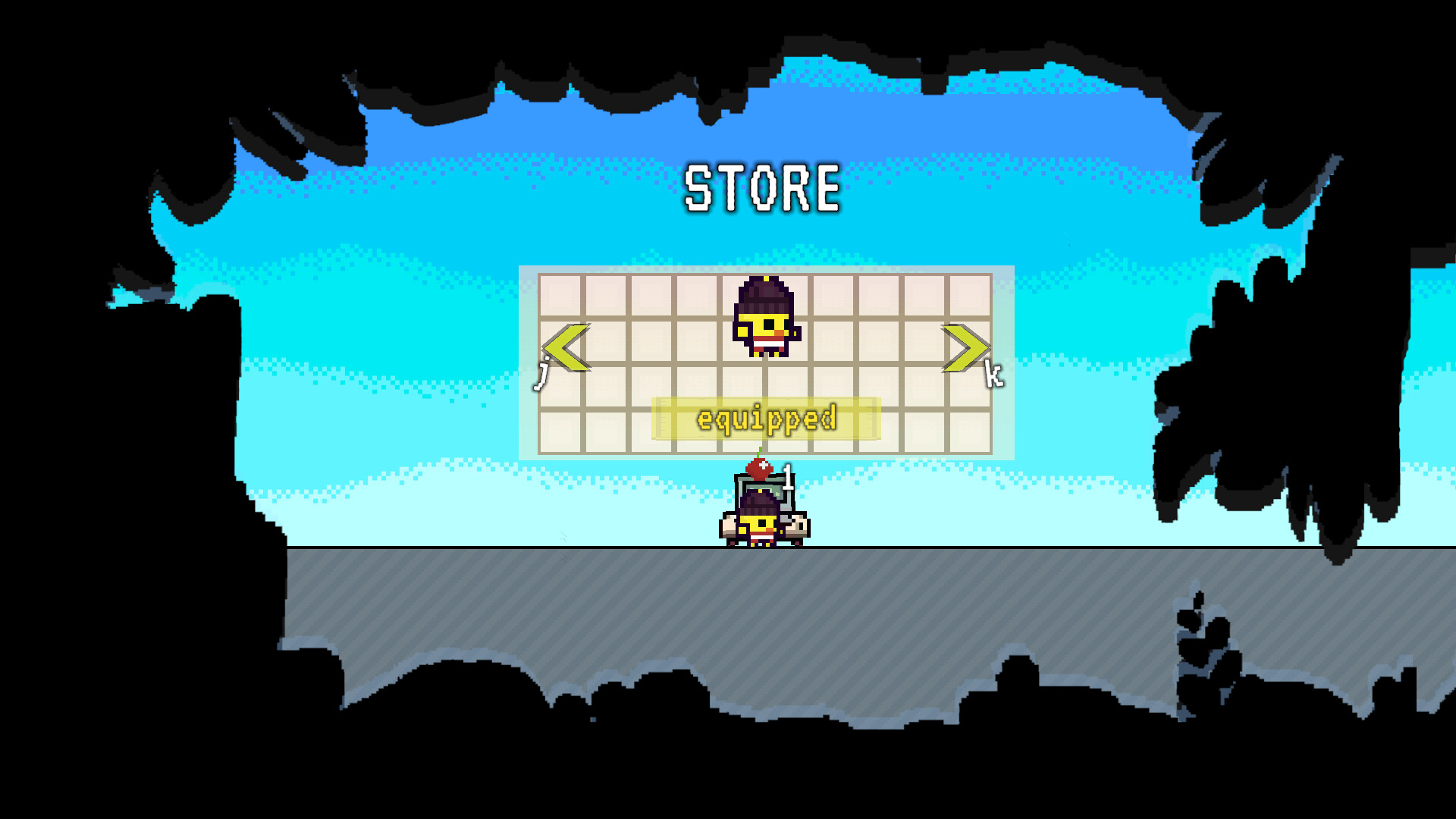Chicklet Is the Ultimate Overrated Pixel Puzzle That Fails to Hatch Anything New
Hello everyone. Today, we’re cracking open the digital egg that is Chicklet, a puzzle game that seemingly believes that slapping a cute sprite on a box of levers and pulleys somehow transforms the whole affair into the second coming of Braid. Strap in, because what we’ve got here is a strange mix of sugar-coated visuals smeared over mechanics that appear to exist solely to remind you that game designers sometimes mistake “annoying” for “clever.”
The Premise: Chick in a Box
The pitch here is simple: an adorable chick falls into a pixelated, multi-dimensional machine and must escape via a gauntlet of puzzles. Yes, it’s the classic “innocent creature trapped in a nightmare hellscape ruled by arbitrary mechanics” story – a tale as old as gaming itself. Of course, let’s be honest: no one is here for narrative depth. You could justify the entire setup with “why not?” and walk away. The star of the show is puzzle-solving – or at least, it’s supposed to be.
Now, I’m all for puzzle games. They tickle the brain the way caffeine tickles the adrenal glands. But if your puzzle hook boils down to “pull levers in the right order,” forgive me if I don’t exactly leap out of my chair screaming Eureka. This isn’t the Sistine Chapel of game design. It’s more like someone put a post-it note on your fridge and said, “Sort this in alphabetical order.”
Gameplay Mechanics: Pull. The. Lever.
The core mechanic? You guessed it: levers. Flip one, a page opens. Flip another, something else closes. Incorrect sequence? Congratulations, you’ve created a prison of your own incompetence. It’s like a sadistic elevator design contest. Somewhere, an engineer is shaking their head, muttering, “This is not how it works.”
Yes, plenty of puzzle games revolve around sequencing and pattern recognition. But the very description offers no evidence of progression beyond “same mechanic, probably harder.” If this is your idea of variety, it’s like prescribing aspirin for everything: headache, stomach ache, or broken leg-aspirin it is! As a doctor, let me tell you, that’d get me disbarred within the week. Likewise, game design that leans entirely on repetition gets old faster than your graphics card drivers.
Visuals: Pixel Sugar Rush
Okay, I’ll admit it-Chicklet looks gorgeous in its retro-pixel glory. The art screams “curated by someone with way too much free time and an unhealthy relationship with cherry color palettes.” You collect cherries, apparently, because we gamers are Pavlov’s dogs and need a shiny reward to validate our existence. Costumes for the chick? Fine, dress up the bird, I guess. Nothing screams “serious puzzle-solving tension” quite like slapping a clown wig on your protagonist. Perfect immersion!




But this is the problem with cute visuals in puzzle games: after the initial charm wears off, you’re left with the frustrating grind of brain-teasers that don’t evolve. Pretty pixels do not equate to compelling gameplay. You can’t plaster sugar on broccoli and call it dessert-it’s still broccoli.
System Requirements: Running on a Calculator
Now, I’ll give the developers credit: you could probably run Chicklet on the electronic thermometer in my clinic. 200 MB storage requirement, 2 GB RAM, an ancient Intel i3, and you’re good to go. I half expected them to list “etch-a-sketch” as a compatible platform. Look, performance accessibility is a good thing, and as a gamer, I appreciate low requirements. But when your hardware barrier is lower than the average indie soundtrack file size, maybe you’re not exactly pushing boundaries.
The Puzzling Problem
The real issue here is that games like Chicklet come across as designed for Twitch thumbnails rather than actual player retention. Adorable chick + lever mechanics = viral clip fodder. Everyone “awws,” maybe a streamer fails hilariously once or twice, the clip circulates, and boom – fleeting internet fame. After that initial sugar rush, though, how many will grind through thirty levels of “flip lever A, pull lever B, eat another cherry?”
It reeks of surface-level novelty rather than deeply engaging design. And this ties into the larger conspiracy theory of modern indie gaming: design for “viral moments” instead of long-term play. Hook players for twenty minutes and shrug because hey-it’s cheap, it’s cute, and if you don’t like it, maybe it wasn’t meant for you. That, right there, is the gaming equivalent of handing out expired cough drops as candy. Thanks for the placebo, but I’d rather have the cure.
The Humor and Horror of Levers
I must ask the obvious here: how many times can flipping a lever be engaging? Once, maybe twice if you’re easily entertained. Three times? Now we’re in masochist territory. Past that, the mechanic is less puzzler and more punishment. It’s the gameplay equivalent of making your patient recite the alphabet backwards during a check-up-not because it proves anything, but because it amuses the doctor while the patient suffers.
Do we get exciting new twists, inventive mechanics that blow open the formula like a speedrunner breaking a 20-year-old exploit? The previewed material gives no such indication. I fear Chicklet may suffer the curse of indie puzzle games everywhere: beautiful art, quirky concept, shallow execution.
Final Diagnosis: Candy-Coated Simplicity
So where does this leave my prognosis of Chicklet? Visually adorable, technically accessible, but conceptually flimsy. It’s a gimmick stretched too thin, like wrapping a single slice of cheese around an entire loaf of bread and calling it gourmet. This bird may peep enticingly, but it’s not laying golden eggs. In medical terms, this is the flu shot of puzzle games-useful in theory, mildly painful in practice, and you’re never entirely sure if it was worth the trip.
Overall impression? Cute pixels, shallow depth, and a gameplay loop that sounds more like a choreographed light switch routine than an engaging puzzle journey. Not terrible, but not remarkable either. The kind of game you boot up once, coo at the chick, and then uninstall to free up space for something with actual substance.
And that, ladies and gentlemen, is entirely my opinion.

Article Source: Chicklet

